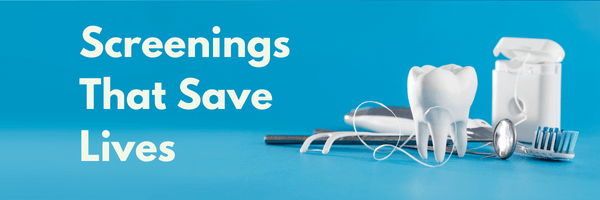
Hiring? Avoid Bringing a Toxic Person Into the Workplace
Posted February 15, 2024
At DentalPost, we frequently hear from job seekers about the less polite and hospitable environments they work in—sometimes “toxic” environments.
In DentalPost’s 2024 Salary Survey, large numbers of respondents said they wanted to escape to a better work environment, including:
- 46.15% of job-seeking associate dentists
- 52.27% of job-seeking dental hygienists
- 58.55% of job-seeking dental assistants
Real improvements can be made to minimize rudeness, gossip, bullying, and negativity through steps like these:
- Building workplace cultures that do not tolerate rude and unsociable behavior, including gossip – everyone can help with this.
- Hiring for civility.
- Spotting toxic candidates before they’re hired.
Below is additional information and interview tips to help you avoid making a costly bad hire.
The Importance of Civility in the Workplace
In a poll of 800 managers and employees, researchers at Georgetown and Arizona State University found that 80% of workers who had witnessed or been the recipient of rudeness lost work time worrying about it. 78% said their commitment to the organization had declined, and 66% said their productivity declined.
Even during a labor shortage, I advise replacing a disruptively rude employee. Especially during a labor shortage, we need to maintain high team morale. BUT–wouldn’t it be wonderful to avoid bringing incivility into the workplace from the beginning? You can do just that by better screening your job candidates.
I recommend pre-planning your interviews to include questions that will help you assess the true nature of job candidates regarding how positively they will interact with and support others on the team.
Questions to Ask Job Candidates
One aspect of interviewing candidates is their tendency to tell you what they think you want to hear. Asking various open questions and encouraging them to use examples in their answers promotes more candor. If an answer is short, press the candidate to tell you more. You might say, “I’m curious to know more about what you think. Tell me more. Do you have an example from your own experience?”
ASK: “What do you consider rude behaviors in the workplace?”
LOOK FOR MULTIPLE ANSWERS LIKE THESE:
- Gossiping
- Glory stealing
- Blaming
- Not caring about others
- Being messy
- Not doing a fair share of shared responsibilities
- Excessive socializing
- Criticizing others
- Not greeting everyone as they come in and not saying goodbye as they leave
ASK: “What do you think are important rules for team meetings?”
LOOK FOR MULTIPLE ANSWERS LIKE THESE:
- Arrive on time
- Give those speaking your full attention
- Respect all comments
- Solicit thoughts of someone who has remained quiet
- Don’t interrupt others
- Don’t overtalk others
- Don’t squash someone’s idea too early
- Consider other team members’ schedules when requesting a meeting
- Pre-communicate the meeting agenda
- Prepare ahead of time
ASK: “What do you think are important behaviors for the smooth running of a dental practice?”
LOOK FOR MULTIPLE ANSWERS LIKE THESE:
- Understanding the role and tasks of each team member
- Appreciating the demands of others
- Helping without being asked or expecting to be rewarded
- Understanding, appreciating, and utilizing the strengths of each team member
- Keeping everyone informed
- A cheerful attitude
- Respecting others
- Coping well with different personalities and others’ agendas
- Genuinely caring for others
- Giving patients your personal attention
- Empathy for patients’ anxiety
- Hospitality
- Please and thank you
- Patience
- Valuing teamwork
- Believing in the mission and vision of the practice
- Love for helping others
- Love for people
- Maintaining perspective on the “big picture” of everything going on
Questions to Ask Yourself
Candidates who have decided to take the next step in the application and interview process will likely be on their best behavior. In our eagerness to fill the position, we may miss important cues. To assess if a candidate is genuinely interested in other people and their welfare, strategically ask yourself these questions after the interview:
- When we described the mission and vision of our organization and our most immediate goals, did the candidate maintain lengthy interest or become disengaged and act bored?
- When we introduced the candidate to people on our team, did they show genuine interest in them? Did the candidate attempt to build rapport?
- Did the candidate voluntarily say, “I love working with people and helping others?”
- When we described the challenges we currently face, did the candidate express empathy and offer an idea of how they could help?
Review the Evidence
We want to feel assured that our top candidate is high on civility and driven to serve others.
Debrief with yourself and your team after a candidate has been interviewed. Did the candidate leave you with the impression that:
- They are strong on respect and courtesy
- Their desire to help others is heartfelt
- Their emotional intelligence is high
- They are naturally in alignment with your ‘Why’
What actual signs of “civility” or “incivility” did you hear or see in the candidate’s words, tone of voice, and body language? List them and be objective as you mentally process what they mean.
In the excitement of attracting someone to fill our open position, it’s in our best interest to intentionally check whether we see the signs that someone is the civil and genuinely caring (team-worthy) person we need.
We connect and educate more than 900,000 job seekers in the U.S. and Canada to build better places to work through teams that excel.



.png)




.png)
